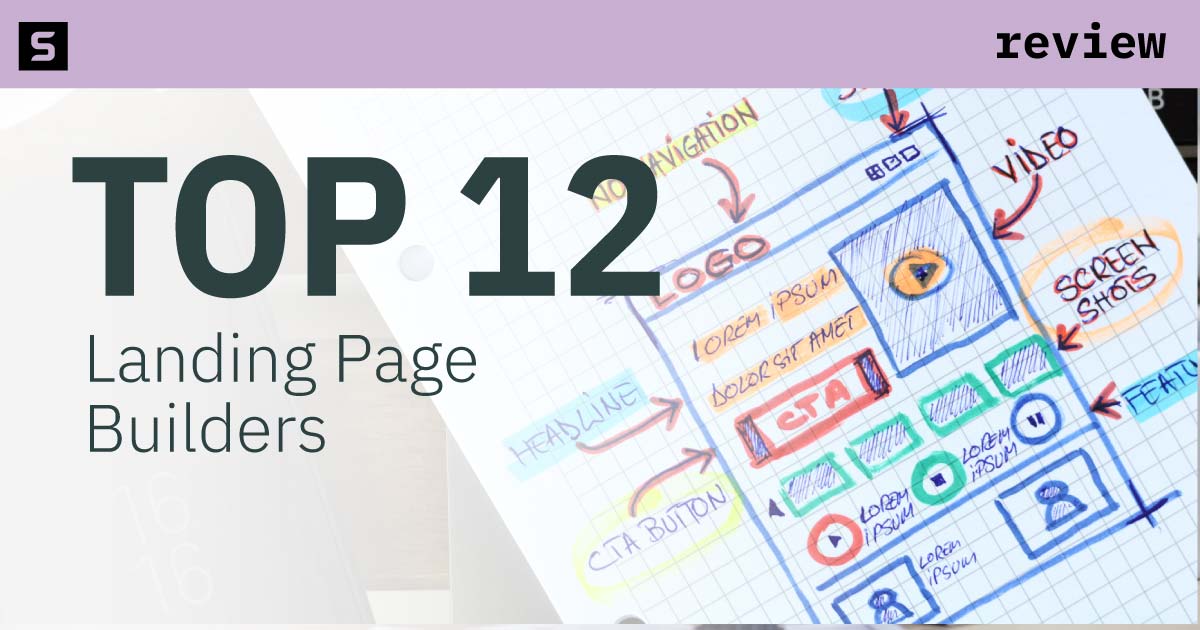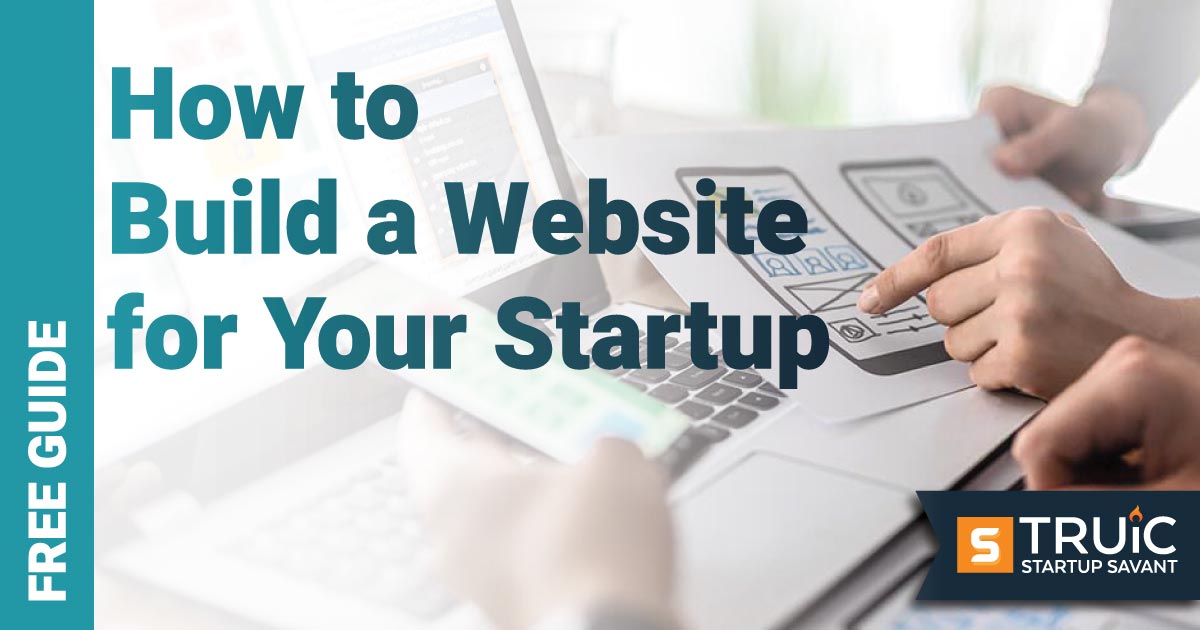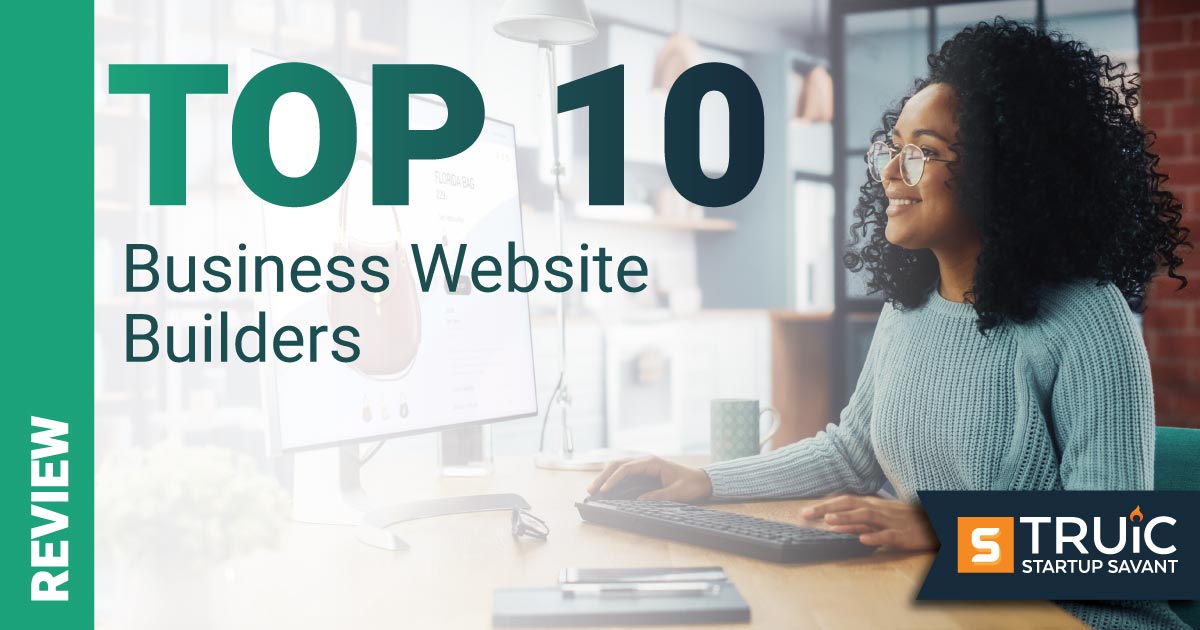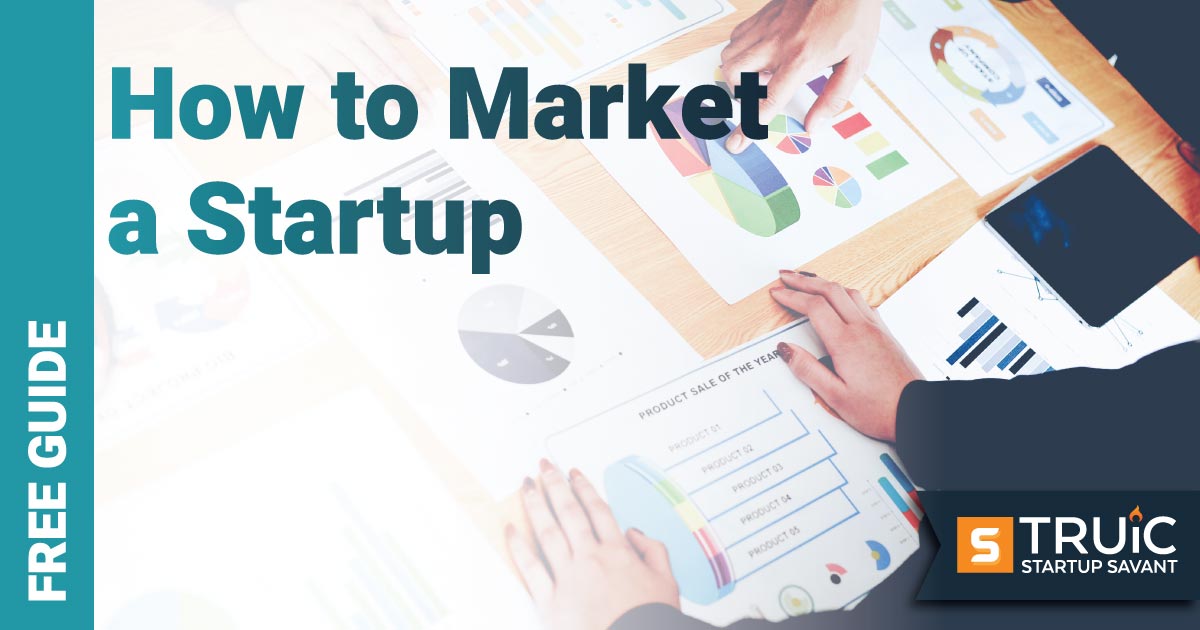12 Best Landing Page Builders for Startups

Last Updated: By TRUiC Team
In a world where your digital presence makes all the difference, startup owners should look for effective ways to stand out and connect with their target audience online. One important part of having an online presence is a compelling landing page, which is essentially a digital gateway that's known to influence your prospective customers' perception of you and their decision-making. It's an essential tool that not only conveys your brand's message and product/service offerings, but also drives potential customers to take action straight away.
Creating engaging and high-converting landing pages that align with your brand isn't always an easy task, though. It requires a mix of design, development, and marketing skills that can seem intimidating or time-consuming for many — especially for startups with limited resources. Thanks to advancements in technology and the rise of landing page builders, the task has become more accessible than ever.
Landing page builders are platforms that offer user-friendly tools for creating and customizing landing pages — even for those without extensive technical or design knowledge. They offer innovative solutions like drag-and-drop functions, professionally designed templates, and integrations with commonly used marketing tools. In this guide, we'll dive into an in-depth overview of some of the best landing page builders that can help startups like yours scale their digital presence efficiently and effectively.
Top Startup Landing Page Builders
For startups, getting noticed online can be quite a challenge. With large swaths of brands fighting for the same audience's attention, an intuitive and engaging landing page becomes a critical tool to make you stand out from the crowd.
There’s no doubt a well-crafted landing page can not only capture your visitors' interest, but also persuade them to take the desired action to boost conversion rates for your startup. Let's dive into a list of platforms that could prove helpful when it comes to designing the perfect landing page for your business.
1. Carrd
Carrd is a platform that specializes in creating simple and free one-page websites with a responsive design. It builds designs that look great on any device from smartphones to desktop computers. It offers a variety of templates and a blank canvas, enabling users to fully customize their sites. Carrd allows users to create up to three sites for free, with full access to its core features. Carrd's Pro membership offers three tiers: Pro Lite ($9/year), Pro Standard ($19/year) and Pro Plus ($49/year). This unlocks additional features, such as custom domains, the creation of more than three sites, and various form integrations.
A Carrd Pro membership also permits users to insert custom code and widgets from third-party services like Stripe, PayPal and Google Analytics. The platform allows users to publish sites without the Carrd branding and offers a seven-day free trial for its Pro version.
Pros
- Offers a free version for beginners
- Easy-to-use interface
- Responsive templates for various devices
- Abundant integration options
- Affordable Pro plans
Cons
- Limited to single-page websites
- Less suitable for complex sites
2. Unbounce
Unbounce is an artificial intelligence (AI)-powered platform dedicated to helping businesses convert more visitors into leads, sales, and sign-ups. Its landing page builder uses drag-and-drop functionality to create custom pages for both desktop and mobile devices without any coding required. The platform also has built-in “A/B” testing capabilities and AI optimization, which automatically directs visitors to the page most likely to encourage conversion. This results in an average 30% increase in conversions.
Here’s the pricing for Unbounce plans: Build ($74/month), Experiment ($112/month), Optimize ($187/month), and Concierge ($649/month) the latter of which provides dedicated support for maximizing your marketing return on investment (ROI). Unbounce also seamlessly integrates with popular marketing platforms like Salesforce, HubSpot and Zapier. It's particularly well-suited for Software as a Service (SaaS) businesses, ecommerce stores, and marketing agencies looking to scale their marketing efforts.
Pros
- AI-powered optimization increases conversions
- Integrated “A/B” testing feature
- Extensive drag-and-drop functionality
- A range of pricing plans
- A high degree of compatibility with other platforms
Cons
- Higher pricing compared to competitors
- Potentially overwhelming for beginners
3. Leadpages
Leadpages sets itself apart from the competition with fast page load times for all of its landing pages, which load 2.4 seconds faster than the industry average. It features AI technology that generates copy and images, ultimately speeding up the landing page building process. Leadpages' pricing plans include: Standard ($37/month), Pro ($74/month), and Advanced (custom pricing).
Designed for search engine optimization (SEO), Leadpages provides premade sections, drag-and-drop widgets, and templates. It’s important to note that Leadpages' major differentiator is that it lets users spend less time building landing pages and more time growing their business. The company also offers a 14-day free trial to get users online quickly and easily.
Pros
- Fast page load times
- AI-based design tools
- Templates built for SEO
- Concentrated on rapid and efficient building
- Emphasizes business growth
Cons
- No free plan available
- Customization might be limited
4. HubSpot
HubSpot provides a free landing page builder that helps users create professional-looking landing pages without any requirement for design or technical skills. Its pricing plans are: Free Tools ($0/month), Marketing Hub Starter ($15/month/seat), and Marketing Hub Professional ($800/month with three seats included). HubSpot emphasizes its ease of use and versatility for various marketing uses.
The landing pages created with HubSpot can feed into the user's customer relationship management (CRM) database, providing a continuous pipeline of interested prospects. Because of this, the platform is known as an effective way to convert website visitors into qualified business leads.
Pros
- Free landing page builder available
- User-friendly interface
- Excellent CRM integration
- Focuses on generating more leads
- Landing pages applicable for varied marketing goals
Cons
- Higher-priced plans for advanced features
- Might be more complex for beginners
5. Instapage
Instapage is recognized as a leader in providing landing page solutions across various market segments. It provides a platform that allows users to meet ambitious goals around flexibility, speed, optimization, and the localization of post-click landing pages. Its Build plan costs $199/month while its Convert plan has custom pricing available upon request.
Instapage users can create different landing page variations that perform well for each unique marketing channel. The platform is a powerful solution that enables personalized experiences for every ad and audience.
Pros
- Recognized as a leading provider
- Versatile personalization options
- Consolidates fragmented design processes
- Optimal for scaling landing page experiences
- Strong emphasis on digital ad performance
Cons
- High pricing tier for premium features
- Might be too comprehensive for basic uses
6. GetResponse
GetResponse offers tools like an AI-powered generator, drag-and-drop editor, and predesigned templates that enable users to easily build high-converting landing pages. The platform provides a free plan as well as four other paid plans: Email Marketing ($19/month), Marketing Automation ($59/month), Ecommerce Marketing ($119/month), and GetResponse MAX ($1,099/month).
GetResponse emphasizes the ability to run “A/B” tests, analyze performance data, and make data-driven optimizations to improve landing page conversions. The platform also suggests its users can benefit from increased ROI, lead generation, and customer conversions through the use of custom, high-converting landing pages.
Pros
- Landing page creator comes with AI features
- Compatible with email, automation, ecommerce, and app integrations
- Includes “A/B” testing and performance data analyses
- Offers a free plan
- Focuses on increasing landing page conversions
Cons
- Higher tiers might be costly
- Could be overwhelming for first-time users
7. Mailchimp
Mailchimp's landing page builder lets you quickly build attractive landing pages to help you acquire new customers, optimize conversion rates, and generate general excitement for your brand. It offers plans that include Free ($0/month), Essentials ($13/month), Standard ($20/month), and Premium ($350/month).
The platform provides features like “A/B” testing, automated customer journeys, predictive segmentation, and even a campaign manager to help optimize landing pages and campaigns. Mailchimp can additionally create and publish mobile-optimized landing pages quickly.
Pros
- Effective for acquiring new customers
- Versatile customization options
- Mobile app for speedy creation
- Detailed reporting on page performance
- Offers templates for easy site-building
Cons
- Lacks advanced features in lower-tier plans
- Might be complex for some users
8. Unicorn Platform
Unicorn Platform is a website builder designed specifically for startups, entrepreneurs, and those with a technical background. Plan options include Lurker (free), Maker ($9/month), Startup ($29/month), and Business ($49/month). The company offers users flexibility by letting them add custom code for more advanced functionality.
Unicorn Platform integrates with Stripe to enable secure payment acceptance and supports the creation of blogs to help users attract an audience. The platform also leverages AI capabilities to help elevate websites from initial creation to ongoing enhancements.
Pros
- Focus on ease of use
- AI-supported capabilities
- Allows added custom code
- Blogger-friendly platform
- Connects with Stripe for payments
Cons
- Limited free plan features
- Requires an upgrade for more sites
9. Umso
Umso is a website builder that enables users to create a beautiful website without any design or coding experience. Its plans include Free ($0/site/month), Basic ($7/site/month), and Pro ($20/site/month). Umso uses ChatGPT to generate content for your homepage, providing a solid starting point even if you don’t know what to write for your landing page’s copy.
It offers high reliability, easy publishing, and fast load times. Umso also offers powerful features like analytics, lead capturing, collaboration tools, blogging, and multilingual support. It's described as the "easiest landing page builder" that’s both intuitive and robust.
Pros
- Simple and intuitive to use
- Enables fast website building
- Offers a smart layout engine
- Delivers high reliability with speedy publishing
- Includes multilingual support
Cons
- Limited customization capabilities
- Might not support complex designs
10. ConvertKit
ConvertKit provides a free landing page builder that allows users to create customizable, high-converting landing pages without any coding knowledge. The platform provides Free ($0/month), Creator ($9/month), and Creator Pro ($25/month) plans. ConvertKit's landing page builder is said to be easy to use — even for individuals without design experience.
The builder helps creators build their email lists and stay connected with their audience through customizable opt-in forms and lead magnet delivery. Overall, ConvertKit’s landing page builder can help online creators and businesses effectively promote their ideas and grow their audience.
Pros
- Offers a free landing page builder
- One-click access to Unsplash images
- Optimized for various marketing goals
- Effective in promoting ideas quickly
- Includes customizable opt-in forms
Cons
- Requires upgrades for advanced features
- Testimonials may not reflect user experiences
11. Landingi
Landingi is a landing page builder and platform that lets users quickly create, launch, and optimize digital assets like landing pages, pop-ups, and microsites. The company offers three plans, including Lite ($29/month), Professional ($69/month), and Unlimited ($999/month).
The platform features AI-powered capabilities to elevate content, support SEO, and edit visual content directly within the builder. Landingi also includes a built-in, no-configuration tracking tool that can monitor micro conversions and events on landing pages.
Pros
- Highly customizable drag-and-drop builder
- More than 400 customizable templates available
- Uses AI for elevating content
- Time-saving features emphasized
- Includes a built-in tracking tool
Cons
- Some complexity in interface use
- High-cost unlimited plan
12. Swipe Pages
Swipe Pages is a landing page builder that allows users to create high-converting, mobile-optimized Accelerated Mobile Pages (AMP) landing pages without any coding experience. Pricing options include the Startup ($29/month), Marketer ($69/month), and Agency ($149/month) plans.
Swipe Pages offers a simple and intuitive interface that’s highly customizable and feature-rich for designers, developers, and marketers. The Swipe Pages platform is trusted by more than 7,500 customers and known as one of the fastest drag-and-drop landing page builders available.
Pros
- Mobile-optimized AMP landing pages
- Easy integration with third-party apps
- Enables team collaboration and role assignments
- Built-in “A/B” testing and analytical tools
- Speedy and trusted by many customers
Cons
- Lacks a range of free features
- You might require more customizability options than available


